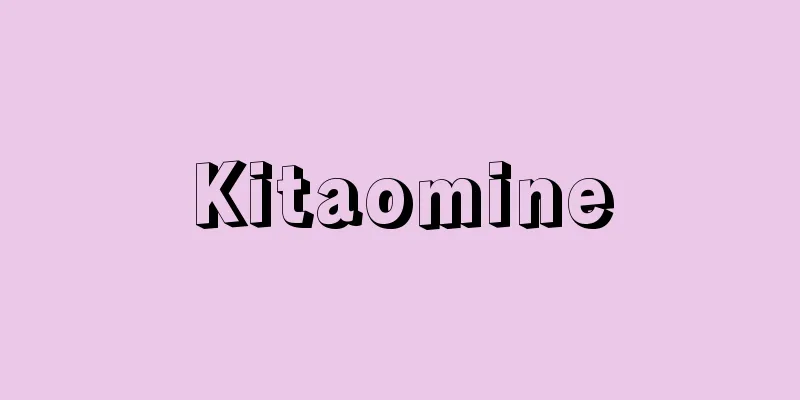Competitive bidding

|
In a sale, multiple potential buyers are invited to submit contract terms, and a contract is awarded to the one who presents the most favorable terms. In Japan, competitive bidding is often used for public works and government procurement, when a single buyer (such as the government or local government) selects a contractor from multiple potential buyers (sellers). There are two types of bidding: "open competitive bidding," in which anyone can participate, and "designated competitive bidding," in which bidders are narrowed down in advance based on past performance and technical capabilities. Contracting with a specific party without competitive bidding is called a discretionary contract. Open competitive bidding has a transparent selection process and is effective in preventing collusion, and has a large cost reduction effect through competition, but it can lead to excessive competition and a decline in quality. Designated competitive bidding can prevent excessive competition and reduce bid review and supervision work, but the designation process is opaque and prone to collusion. Discretionary contracts allow for quick response in times of disaster, and are suitable for contracts with highly specialized parties such as patent holders, but the principle of competition does not work and corruption is likely to occur. When there is only one potential buyer in a competitive bidding, it is called a "single-party bid." In open competitive bidding, a single bid may be permitted, but in designated competitive bidding, if there is only one bid, the bidding will be redone. Since the Meiji era, the Accounting Act and the Local Autonomy Act have stipulated that open competitive bidding is the rule for contracts with the national and local governments. However, designated competitive bidding, which was allowed as an exception in order to eliminate unscrupulous contractors, was widely used before the Second World War and became a hotbed of collusion. However, following the corruption scandal involving general contractors in 1993, open competitive bidding was introduced for large-scale public works in 1994. Furthermore, following the collusion scandal involving the steel bridge construction project in 2005 and the collusion scandal involving the governors of Fukushima, Wakayama, and Miyazaki prefectures in 2006, the Ministry of Land, Infrastructure, Transport and Tourism made open competitive bidding mandatory for all direct-management projects. In 2006, the Ministry of Internal Affairs and Communications also notified prefectures and cities designated by government ordinance to reconsider discretionary contracts. In government procurement, competitive bidding must be implemented if the procurement amount per project exceeds the threshold amount set by the World Trade Organization (WTO) Agreement on Government Procurement, which allows Japanese and foreign companies to compete on an equal footing. The base amount is to be reviewed every two years in line with fluctuations in foreign exchange rates. The practice of selecting public services provided by the national and local governments through competitive bidding between the public and private sectors is called a "market test." It is expected that this will create a hole in the public monopoly of public services, lowering service fees and improving the quality of services. [Takeshi Yano February 17, 2015] [Reference items] | | |Source: Shogakukan Encyclopedia Nipponica About Encyclopedia Nipponica Information | Legend |
|
売買において、複数の契約希望者に契約条件を提示させ、もっとも有利な条件を提示した者と契約すること。日本では、競争入札は、公共工事や政府調達について、官(政府や地方公共団体など)という一つの買い手が複数の契約希望者(複数の売り手)のなかから、契約者を選ぶ際に使われる場合が多い。だれでも入札に参加できる「一般競争入札」と、入札に参加する者を過去の実績や技術力などであらかじめ絞り込む「指名競争入札」がある。競争入札を行わず、特定の者と契約することは随意契約とよぶ。一般競争入札は選定過程が透明で談合防止効果があり、競争によるコスト削減効果が大きいが、過当競争となり、品質低下を招くおそれがある。指名競争入札は過当競争を抑え、入札審査や監督業務を軽減できるが、指名過程が不透明で談合を誘発しやすい。随意契約は災害時などに迅速に対応できるほか、特許保有者など専門性の高い者との契約に向いているが、競争原理が働かず汚職が起きやすい。競争入札で、契約希望者が1者だけの場合を「1者入札」とよぶ。一般競争入札では1者入札を認める場合もあるが、指名競争入札で1者入札となった場合は入札をやり直す。 国や地方公共団体との契約は、明治以降、会計法や地方自治法で、一般競争入札が原則と定められているが、悪質な業者を排除する目的で、例外として認められた指名競争入札が第二次世界大戦前から広く行われ、談合の温床となってきた。しかし1993年(平成5)のゼネコン汚職を機に、1994年から大規模公共工事について一般競争入札を導入。さらに2005年(平成17)の鋼鉄製橋梁(きょうりょう)工事談合事件や2006年の福島・和歌山・宮崎県知事による官製談合事件を機に、国土交通省は直轄事業について広く一般競争入札を義務づけた。また、総務省は2006年、都道府県や政令指定都市に随意契約を見直すよう通達した。政府調達では、日本企業と外国企業が対等に競争できるように定めた世界貿易機関(WTO)の政府調達協定に基づき、1件あたりの調達額が同協定で定めた基準額を上回る場合、競争入札を実施しなければならない。基準額は2年ごとに、外国為替相場の変動にあわせて見直すことになっている。 なお国や地方公共団体が提供する公共サービスを、官と民の競争入札で選ぶことを「市場化テスト」とよぶ。これには、公共サービスの官独占に風穴を開け、利用料金の低下やサービスの質的向上を促す効果が期待されている。 [矢野 武 2015年2月17日] [参照項目] | | |出典 小学館 日本大百科全書(ニッポニカ)日本大百科全書(ニッポニカ)について 情報 | 凡例 |
>>: Competitive Exclusion Principle
Recommend
Yamabiko Genshiro - Yamabiko Genshiro
A shamisen player of the Kawato-bushi style. There...
Mahāsaṅghiya (English spelling) Mahasanghiya
...It was a powerful sect of Hinayana Buddhism, w...
Young, C.
…The protagonist of the newspaper comic strip of ...
Buryat - Buryatgo
A Mongolian language. It is spoken mainly by the ...
Yukitada Watarai
He was a shrine official at Toyouke Daijingu (the...
SALT
Strategic Arms Limitation Talks : Strategic Arms L...
Pressure injection valve - Pressure injection valve
…For example, the applications of (1) are as foll...
Dom Pedro de Alcântara (English spelling)
…Emperor of Brazil. Reigned 1831-89. Seventh son ...
Uchihara [town] - Uchihara
A former town in Higashiibaraki County, located in...
Bankim Chandra
Indian novelist and thinker. He started out writin...
Campos (English spelling)
A city in the northeast of Rio de Janeiro State, s...
Dai Nippon Printing Co., Ltd. - Dai Nippon Printing
A printing company. Founded by Sakuma Teiichi in 1...
Papyrus documents - Papyrus Monjo
The Greek papyrus is a type of ancient Greek text ...
Emperor Daoguang
The 8th emperor of the Qing Dynasty of China (rei...
Geometric Microliths
...One type is stone tools made using small stone...









